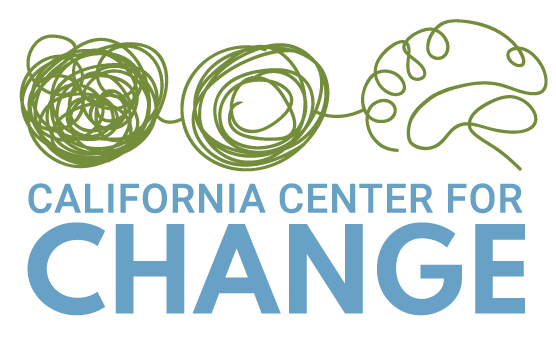
Workshops & Professional Training
We are available for workshops and professional training on topics ranging from the neurobiology of addiction to responsible drinking skills.
Past audiences have included students at Notre Dame de Namur University and the University of San Francisco, mental health patients from Contra Costa Health Services and UCSF, mental health providers from Bayside Marin and Sequoia Center, and forensic service agencies such as the San Francisco Public Defender’s Office, the San Francisco District Attorney’s Office, Alameda County District Attorney’s Office, and the United States Probation Office.
Training for mental health professionals
Overview of Harm Reduction
Harm reduction is a pragmatic approach to drug use that aims to improve the lives of people who use substances through social justice, education, compassionate care, and access to resources. Harm reduction values life, choice, respect, and compassion over judgment, stigma, discrimination, and punishment.
Objectives:
Learn the tenants of harm reduction
Understand the elements necessary for change
Develop empathy and compassion towards difficult clients
Facilitate the change process
Motivational Interviewing Skills
Motivational Interviewing is an evidence-based approach to facilitating change. With just a few basic skills, you can help clients move towards the change they desire. This training will equip you with tools and techniques that increase self-efficacy, address ambivalence, and promote empathy.
Objectives:
Understand the elements necessary for change
Identify the principles of motivational interviewing
Facilitate change by asking questions
Learn tools and techniques for working through ambivalence
Listen for change talk and intervene with action when appropriate
Roll with resistance to understand obstacles to change
Harm Reduction Toolkit
Harm Reduction is a pragmatic and compassionate approach to change. Many evidence-based practices can be utilized to facilitate the change process. Components of Cognitive Behavioral Therapy, Dialectical Behavior Therapy, Acceptance and Commitment Therapy, attachment theory, and mindfulness practices will be presented to enhance your clinical toolbox. This workshop is appropriate for anyone providing direct services regardless of degree or licensure status.
Objectives:
Teach mindfulness skills that interrupt the desire for immediate gratification
Identify clients’ values to inform their relationship to drugs and help them cultivate a healthy lifestyle
Transform clients’ shame using self-compassion
Help clients navigate difficult emotional experiences, including anger and stress
Apply attachment theory to a client’s relationship with drugs
Use cognitive restructuring to address distorted thinking and maladaptive core beliefs
Neurobiology of Addiction
Addiction is a biopsychosocial phenomenon that impacts about 20 million people in the US alone. By understanding the science underlying a person’s problematic relationship with drugs, we can provide them with pragmatic, compassionate care and help them to increase their motivation to change while decreasing shame.
Objectives:
Understand addiction from a biopsychosocial perspective
Describe how the brain’s reward circuitry works
Demystify neuroanatomy and neurotransmission specific to addiction
Explain how people develop a drug of choice
Workshops for organizations interested in educating their employees on healthy practices
Responsible drinking
Substance use skills
Past Trainings & Workshops
Fernández, J. (2024, October). Just Say Know: Understanding and Preventing Addiction. Workshop for adolescent clients of UCSF Saint Mary's Hospital McAuley Counseling Enriched Education Program in San Francisco, CA.
Fernández, J. (2023, June). Herramientas de Psicoterapia para Reducción de Daños: Prácticas Basadas en Evidencia para Cambiar la Relación con Drogas. Workshop for Institute of Research, Addiction, and Services in Addiction in San Juan, Puerto Rico.
Fernández, J. (2022, July). Capacitación de reducción de daños. Online workshop for Reducción de Daños Perú.
Fernández, J. (2019, January). Harm Reduction Psychotherapy Toolkit: Evidence-Based Practices to Help People Change Their Relationship with Drugs. Workshop for Abode Services in Fremont, CA.
Fernández, J. (2018, October). Harm Reduction Psychotherapy Toolkit: Evidence-Based Practices to Help People Change Their Relationship with Drugs. Workshop for the 12th National Harm Reduction Conference in New Orleans, LA.
Fernández, J. (2018, October). Supporting Loved Ones Who Use Drugs. Workshop for Integration Station, Berkeley, CA.
Fernández, J. (2018, October). Eliciting Positive Change with Motivational Interviewing. Skills training lecture for students at the University of San Francisco in San Francisco, CA.
Fernández, J. (2016, July). Just Say Know! Understanding and Preventing Addiction. Workshop for the Young Women’s Saturday Program, Alameda County District Attorney’s Office in Oakland, CA.
Corsale, E., Fernández, J., & Smithstein, S. (2014, October). Pathways Institute Juvenile Theft Prevention Program. Presentation to San Francisco Public Defender’s Office and San Francisco Juvenile Probation Department
Fernández, J. (2013, December). Addressing Chemical Dependency in Forensic Settings. Clinical training lecture for post-doctoral interns at Sharper Future, Oakland, CA.
Fernández, J. (2013, November). Eliciting Positive Change with Motivational Interviewing. Skills training lecture for students at Notre Dame de Namur University in Belmont, CA.
Fernández, J. (2013, June). The Neurobiology of Addiction. Psychoeducational presentation for patients of the Nevin House, Anka Behavioral Health, Contra Costa Health Services, Mental Health Division in Richmond, CA.
Fernández, J. (2013, May). Taking Back What’s Been Stolen. Workshop for pre-trial diversion patients, Neighborhood Courts, Office of San Francisco District Attorney George Gascón in San Francisco, CA.
Corsale, E. & Fernández, J. (2013, February). Why treat compulsive stealing? Presentation was given to the United States Probation Office, Northern District of California in San Francisco, CA.
Fernández, J. (2012, November). Defining Success in HRP using Quantitative and Qualitative Methods. Presentation was given at the 9th National Harm Reduction Conference in Portland, OR.
Fernández, J. & Kline, T. (2012, October). Impulse Control Disorders: Diagnosis and Evidence-Based Practices. Presentation was given at Bayside Marin in San Francisco, CA.
Fernández, J. & Smithstein, S. (2012, January). Impulse Control Disorders. Presentation was given at Bayside Marin in San Francisco, CA.
Corsale, E., Fernández, J., & Smithstein, S. (2011, May). Impulse Control Disorders. Presentation was given at Community Justice Court in San Francisco, CA.
Fernández, J. (2011, April). Impulse Control Disorders. The presentation was given at Sequoia Center in Redwood City, CA.
Fernández, J. (2010). Reducing Negative Consequences Associated with Substance Misuse within a Harm Reduction Psychotherapy Model: Preliminary Results. Presentation was given at the Harm Reduction Coalition Conference, Austin, Texas.

